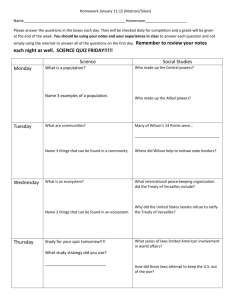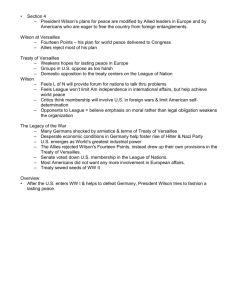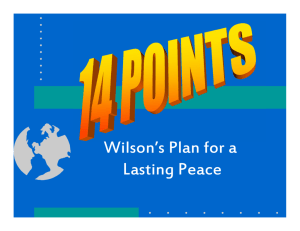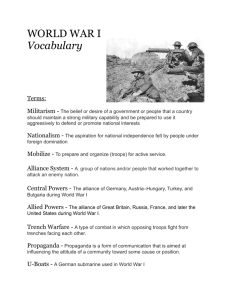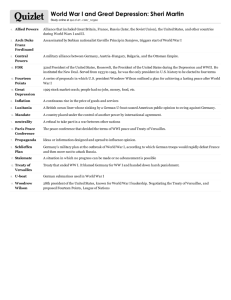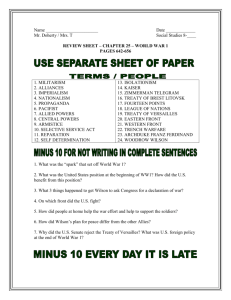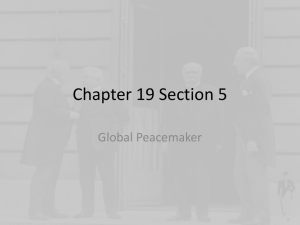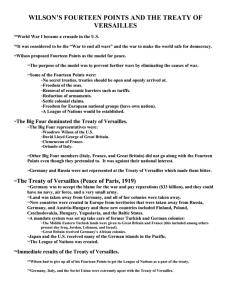Treaty of Versailles vs. Wilson's 14 Points Worksheet
advertisement
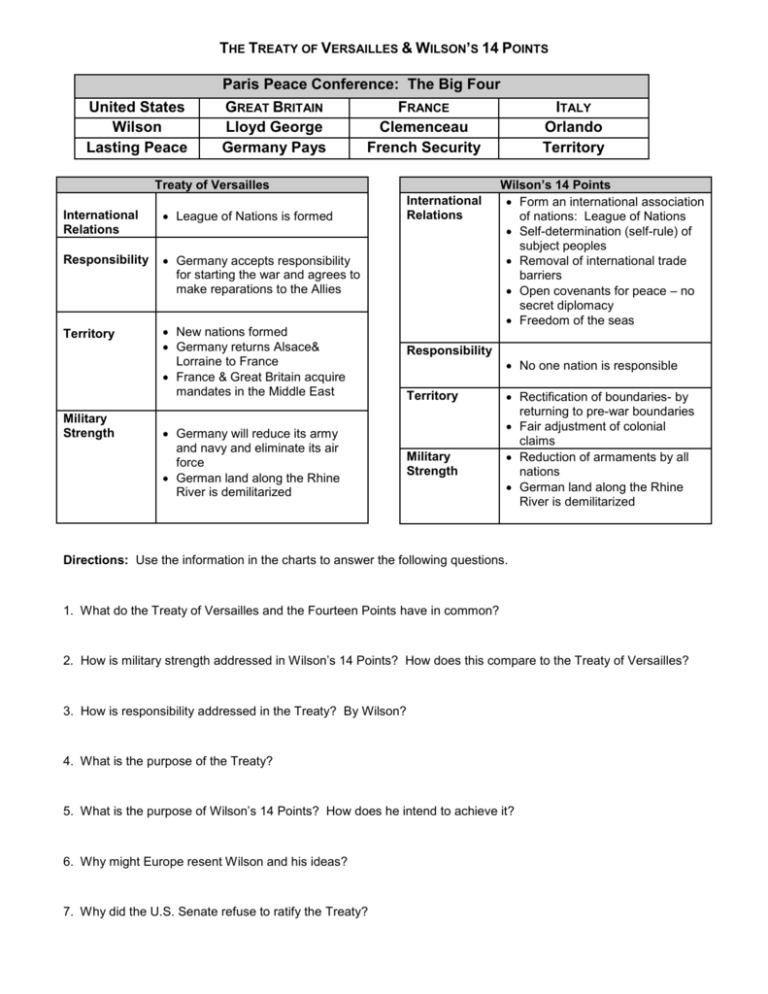
THE TREATY OF VERSAILLES & WILSON’S 14 POINTS Paris Peace Conference: The Big Four United States Wilson Lasting Peace GREAT BRITAIN Lloyd George Germany Pays FRANCE Clemenceau French Security Treaty of Versailles International Relations League of Nations is formed Responsibility Germany accepts responsibility for starting the war and agrees to make reparations to the Allies Territory New nations formed Germany returns Alsace& Lorraine to France France & Great Britain acquire mandates in the Middle East Military Strength Germany will reduce its army and navy and eliminate its air force German land along the Rhine River is demilitarized International Relations ITALY Orlando Territory Wilson’s 14 Points Form an international association of nations: League of Nations Self-determination (self-rule) of subject peoples Removal of international trade barriers Open covenants for peace – no secret diplomacy Freedom of the seas Responsibility No one nation is responsible Territory Military Strength Rectification of boundaries- by returning to pre-war boundaries Fair adjustment of colonial claims Reduction of armaments by all nations German land along the Rhine River is demilitarized Directions: Use the information in the charts to answer the following questions. 1. What do the Treaty of Versailles and the Fourteen Points have in common? 2. How is military strength addressed in Wilson’s 14 Points? How does this compare to the Treaty of Versailles? 3. How is responsibility addressed in the Treaty? By Wilson? 4. What is the purpose of the Treaty? 5. What is the purpose of Wilson’s 14 Points? How does he intend to achieve it? 6. Why might Europe resent Wilson and his ideas? 7. Why did the U.S. Senate refuse to ratify the Treaty?

